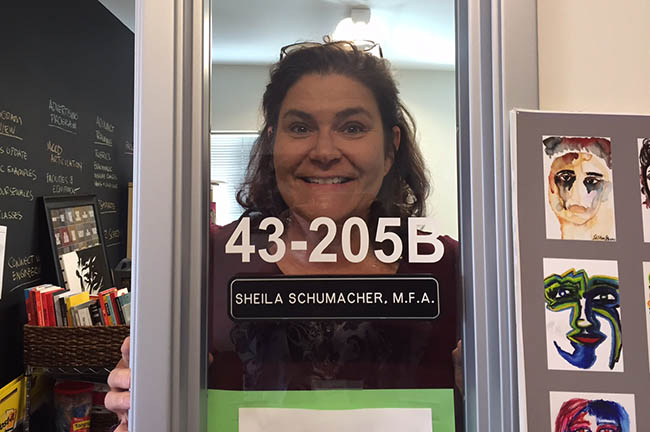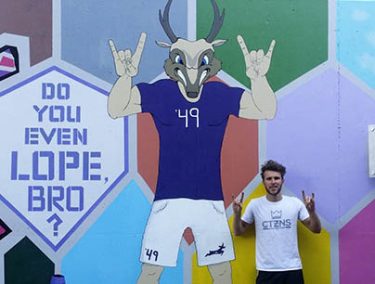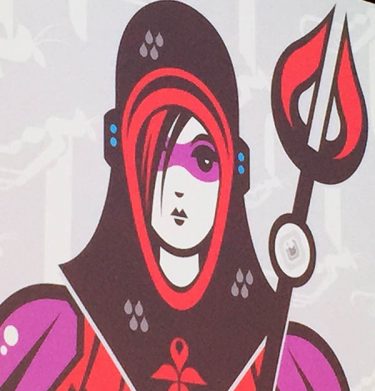
Story and photos by Laurie Merrill
GCU News Bureau
It’s nearly the end of the day, and Sheila Schumacher, Grand Canyon University’s Digital Design director, is brainstorming with a group of students about GCU’s Film Festival.
“They’ve asked us to enter the animated film category,” Schumacher says of the annual spring event. “Let’s figure out how we can enter this.”
A flurry of ideas flows from the leaders of GCU’s Digital Design student group, described as “a community of fun, creativity and growth.”
Sitting in the hallway outside Schumacher’s office in Building 43 on Colter Avenue, the students eagerly toss out suggestions, such as animating a Bible verse or stringing together several 11-second shorts.

“Let’s do something to show off our different styles,” student Maggie Burt says enthusiastically.
Amazing growth
They display the kind of excitement that is contagious, the kind that has caught on and helped expand a program from just four students in 2011 to 383 students this year.
Schumacher is quick to note that the rise of enrollment in Digital Design mirrors the tremendous overall growth of the University. “My progression follows the progression of the school,” Schumacher says.
But that doesn’t detract from the fact that the College of Fine Arts and Production's digital design program is expanding at a rapid pace.
“It’s an indication that these careers are very viable and very interesting to high school seniors," she says. "To be able to go to work and create imaginative, intriguing artwork every day is a fun way to spend your life.”

Many students from the class of 2016 have gone on to excellent jobs that further reflect the quality of GCU’s program, Schumacher says.
“They are working and they created a really wonderful reputation for GCU with their portfolios and their enthusiasm,” she says.
Graduates find jobs as web designers, in biotech companies and in forensics fields and as animators who make not only children’s films — but also give visual form to scientific substances too small to be seen by the human eye, Schumacher says.
They take messages that clients want to give to customers — and design them with typography, color and images in a way that connects.
“GCU has a brand,” Schumacher says, by way of example. “It is purple. It is fun. All the things you see — the logo, the signs, the magazines, the typeface, all of it are put together by a graphic designer.”

Students can earn bachelor's degrees in Advertising Design or Digital Design with an Emphasis on Web Design or Web Animation.
To help accommodate the growth in students, this year Schumacher hired assistant professor Christopher Murphy, an expert in web design who comes from a New York advertising agency.
Special speakers
Schumacher likes to bring in speakers to inspire the students and recently hosted Phoenix businessman Eric Torres — a self-described “owner, maker, designer, illustrator, writer, kidult” — to talk about how he created Iconica, a board game set within the World of Rynaga, a fictional universe filled with colorful characters with unique stories and skills.

Torres, accompanied by his son, Gavin (it’s a family affair; Torres’ wife is also part of the business), described how he used eight shapes to create all the designs that comprise the game.
“The artwork is what drives people to choose characters,” he said.
Student Viridiana Cortes said Torres motivated her to learn something different.
"I saw a new perspective, something I hadn't considered — using art from games to make movies and animation," she said.
The idea of creating such arts digitally drives students to the GCU FDigital Design program. As Schumacher puts it, “It’s a place where magic is happening.”
Contact Laurie Merrill at (602) 639-6511 or [email protected].



































































